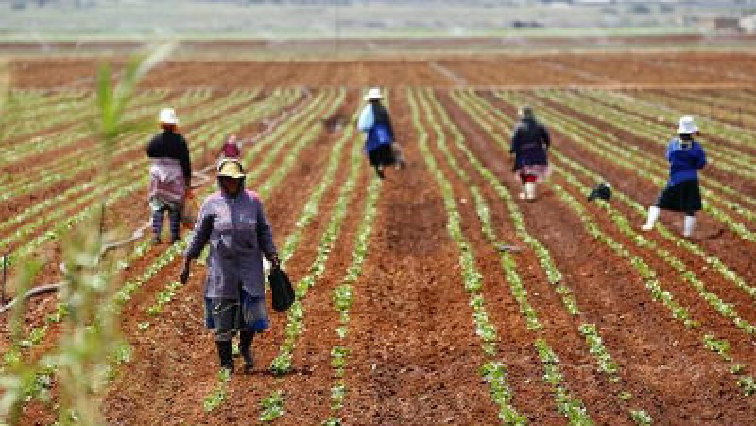The Agriculture, Land Reform and Rural Development Department has allocated R1-billion to support subsistence farmers through the Presidential Employment Stimulus Initiative.
75 000 small scale farmers are expected to benefit from the initiative with farming input vouchers ranging from R1000 to R9000. This, in a bid to assist those farmers whose production was disrupted due to COVID-19 pandemic.
Applications will open from December 10th until the 20th and will target 50% of women, 40% of youth with 6% targeting people with disabilities and unemployed military veterans.
COVID-19 has crippled many industries including the agricultural sector. Subsistence farmers who remain the most affected will also now get financial relief in a bid to retain jobs and continue to feed their families. The department says the application process will be on a first-come-first-served basis as the department will only take 150 000 applications and select 75 000 applicants. Applications are free and can be done via a cell phone.
Thabede speaks about challenges in farming #agriculture #sugar pic.twitter.com/fFPNFBlh0W
— @SAgovnews (@SAgovnews) December 7, 2020
Minister Thoko Didiza says the application forms will be available in all 11 South African official languages.
“Applications will be done through the ussd code and the number is *134*4536#. This is a free application process. An application and application forms will be accessible in these cell phones once you enter the ussd code. The application forms will be available in all 11 South African official languages.”
Minister Thoko Didiza announces PESP implementation:
Didiza believes this is adequate to assist them to get back on their feet.
“The range and the size in which these producers who are household and back garden producers, in large measure, these packages fit within what they need. Some actually go for as small as R2000 for them to be able to produce. So I am comfortable that it will reach a number of people. Somebody who’s working that land, the majority of those people actually are not employed elsewhere, so that’s part of their employment and we want to retain them so they continue to be active and support their families.”
The department’s Clinto Hayman says it has put in place measures to ensure right people benefit from this project.
“We look at your nationality, age, whether you’re working for government, we obviously don’t want government employees to apply; then we will also move to section B which is where we will prioritise women, youth people with disabilities. There’s a scoring system that will be done electronically as the application happens. How do we verify that this is a person that is producing? That would be a physical visit by an agricultural graduate or a member of the department.”
The initiative is also expected to create 6000 temporary jobs for unemployed youth and agricultural graduates.


